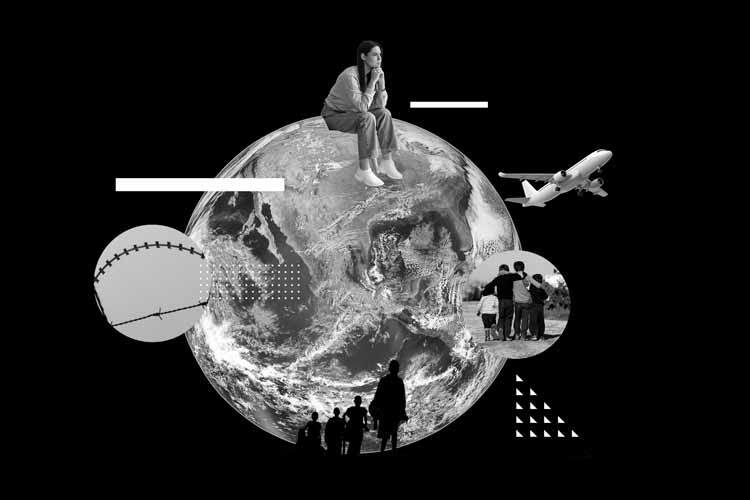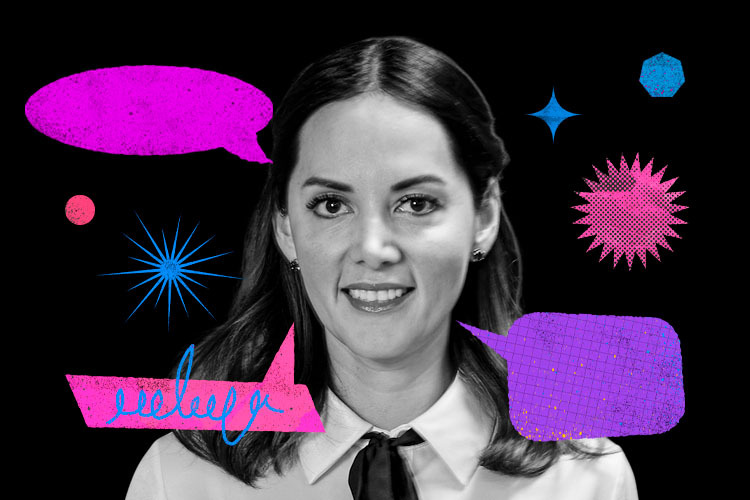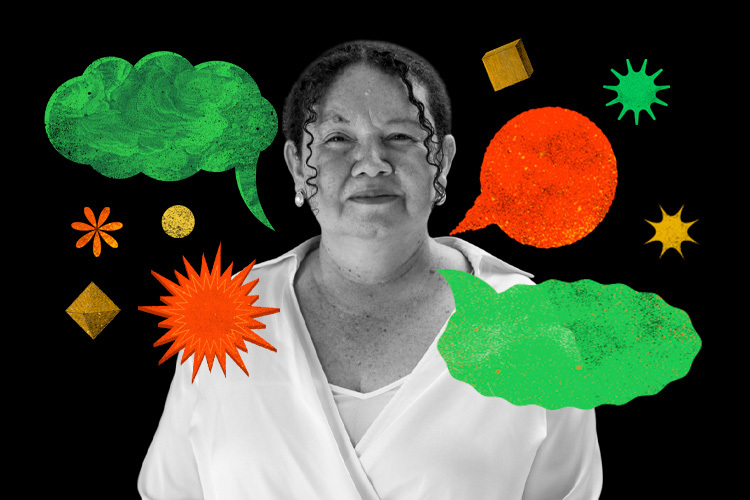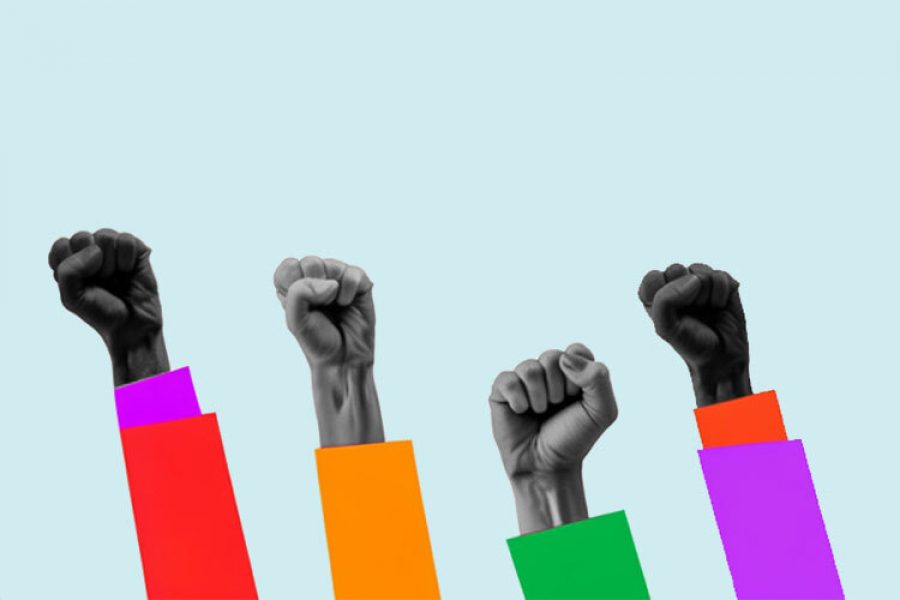Emma Sánchez‘s children were two months, three, and four years old when she crossed the border from the United States to Mexico.
She returned to her home country to complete the paperwork, allowing her to marry her children’s father, a U.S. citizen and war veteran. When she tried to return from Ciudad Juárez, she was warned that, for the next ten years, she would not be able to return to the US, where her children were born and living.
But it wasn’t ten years—it was twelve and a half years that Emma spent separated from her family. She would see them on Sundays, if their routines allowed it. During the week, she could only be present via video call for school events. Still, she remained present despite the border, despite the immigration policies that separated thousands of children from their families, despite the years. When she returned, they were adults. “They’re grown now. I left children, I left babies. I find men.”
Emma’s story, told by herself, is part of a community archive of more than 600 testimonies from migrants and deportees. The two videos in which she and her family describe the difficulties they faced and the joy of their reunion were recorded in 2017 and became the fourth entry in what is now the Humanizing Deportation project.
Being a Good Mother
Her digital narrative, as these kinds of videos are known, where subjects take advantage of technology to record and control their testimonies, also became the source material for research by María de la Cruz Castro Ricalde, a research professor at the School of Humanities and Education at the Tecnológico de Monterrey, who also participated in this project.
Thanks to Emma’s voice and knowledge, Castro identified the changes in the concept of motherhood driven by deported mothers.
The researcher explains that the reference point for what a “good mother” should be, to which the women in the archive aspire, is intensive motherhood. That is, one in which mothers are mainly responsible for raising children, who become their primary occupation.
She adds that, specifically in Mexican culture, these obligations that mothers assume are activities carried out in the private sphere. In other words, while men make decisions, socialize, and unravel in the public sphere (politics, for example), women’s roles are performed inside the home, where they carry out domestic work, parenting, and caregiving. The latter are activities that—socially—are considered of lesser importance.
However, the scientist discovered that deported mothers explain in their narratives how they needed to challenge all these archetypes of what a good mother should be.
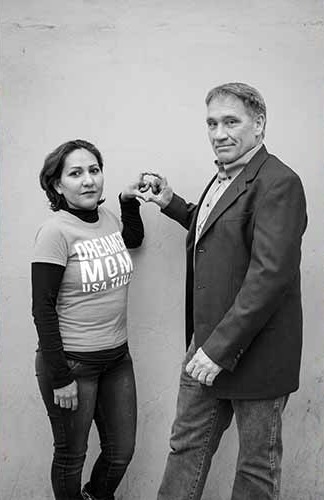
For example, with the desire to provide good quality education and medical care, Emma Sánchez decided that her children should live with her partner in the United States, far from her. This led her to hinder her desire to carry out intensive motherhood, where physical closeness is fundamental.
However, she did not give up on her desire to continue being a mother to her children. “Deported mothers and mothers who emigrate have pushed with their maternal practices the understanding that one can be a mother in many ways,” explains Castro.
For Emma, that meant making the most of the Sundays she could be with her children (they would come to Mexico) and being present for critical moments, even if only by video call.
But she did much more than that. In her research, Maricruz Castro describes how the women in the community archive narrate their taking of public space as human rights defenders for migrants, activities that break with the feminine archetypes of an intensive mother.
Emma Sánchez, for example, joined the group Dreamers Moms, where she was codirector. They describe themselves as a national movement of deported mothers that aims to promote inclusive immigration reforms that guarantee their human rights, including the right to a family, which has been continuously wronged by the actions of the U.S. government.
Through Dreamers Moms, Emma could access the economic support and legal advice that allowed her to continue with her immigration procedures. Eventually, all that work allowed her to reunite with her family.
For the years 2022 and 2023, it is estimated that there were between 4.4 and 4.7 million children with U.S. citizenship living with at least one undocumented parent. This puts them at risk of suffering the same fate as Emma’s children.
According to the Brookings Institute, those 4.7 million children represent 6.7% of all minors with citizenship. Additionally, for more than 2.5 million, both their father and mother live without documents in the United States, putting them at risk of deportation. By the end of 2024, according to Human Rights Watch, of the 4,600 infants who were separated from their families during Donald Trump’s first presidency, 1,360 still had not been reunited with their parents.
Raising their Voice
Castro describes that these women’s participation in the Humanizing Deportation project has also meant recognizing the importance of their own testimonies. Through their digital narratives, these mothers once again burst into the public sphere by giving visibility to their complaints and criticisms against U.S. immigration policies.
“How is it possible that they believe laws that separate a mother from young children, from babies, are correct? How is it possible that they think it is right to leave young children and adolescents without their mother?“
Those are the words with which Emma begins to tell her story.
“On the other hand, they realize that their problem is a problem shared with many others. Listening to other people in the same situation makes them feel accompanied,“ adds Castro.
For her, studying the testimonies of these mothers can help her recognize that public policies do not meet the needs of these women.
Were you interested in this story? Want to publish it? Contact our content editor to learn more: marianaleonm@tec.mx
